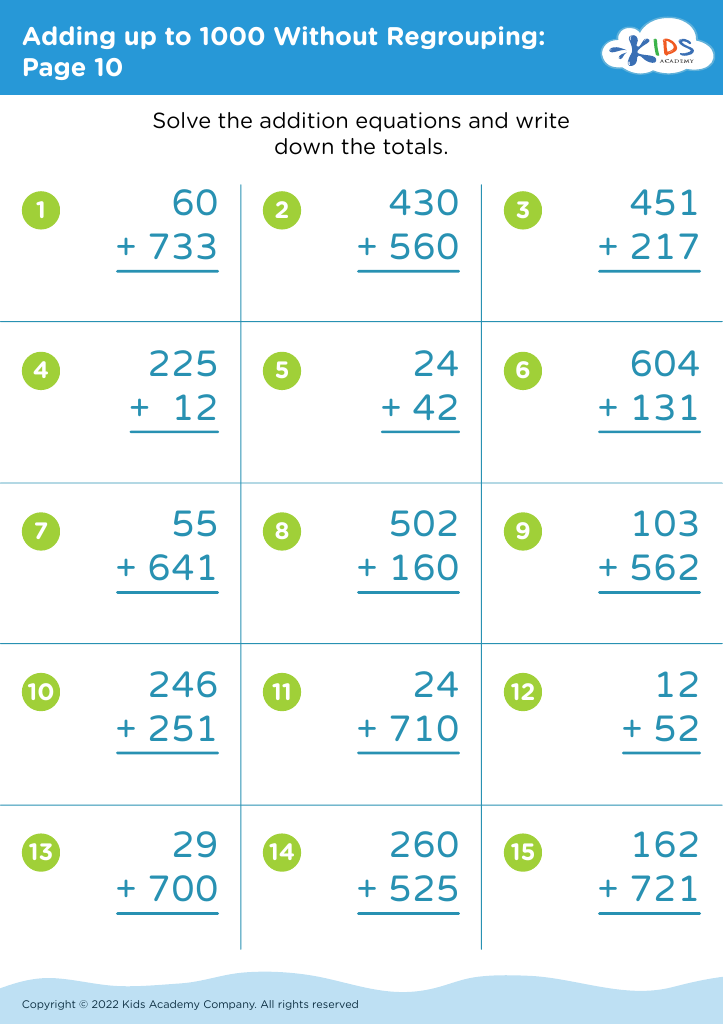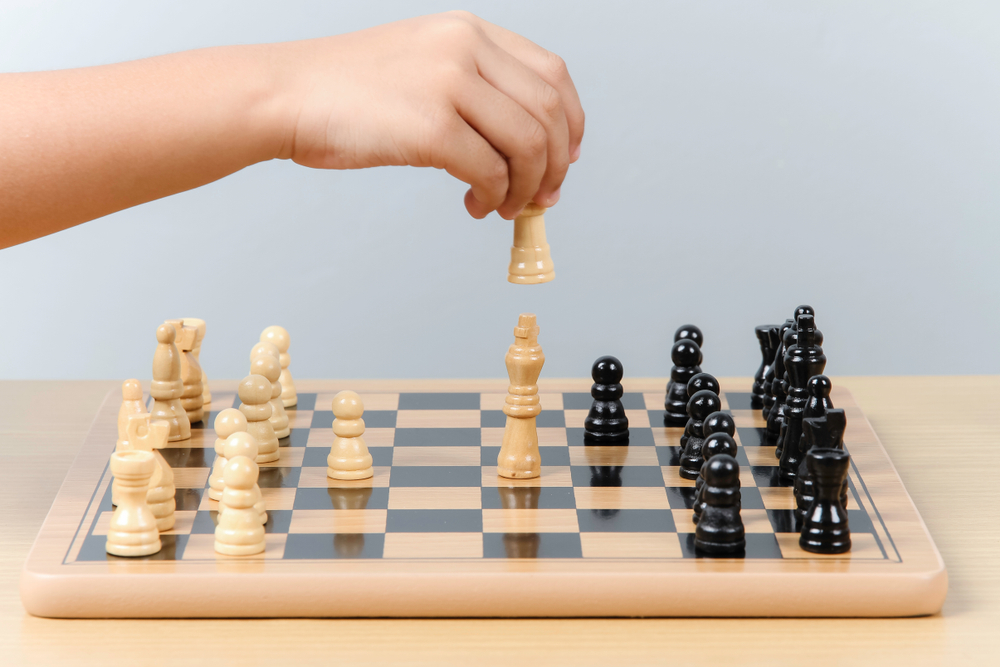Practicing addition Math Worksheets for Ages 6-8
7 filtered results
-
From - To
Unlock the joy of mathematical discovery for children aged 6-8 with our engaging addition math worksheets. Designed by experts, each worksheet offers a diverse range of exercises, from simple sums to more challenging problems, fostering a solid foundation in fundamental math skills. These printables not only enhance arithmetic abilities but also sharpen logical thinking and problem-solving skills. Vibrant visuals and interactive formats keep young learners motivated and excited to practice, ensuring that math becomes a fun and rewarding adventure. Perfect for both classroom and home use, our worksheets make mastering addition enjoyable and achievable for all young mathematicians.
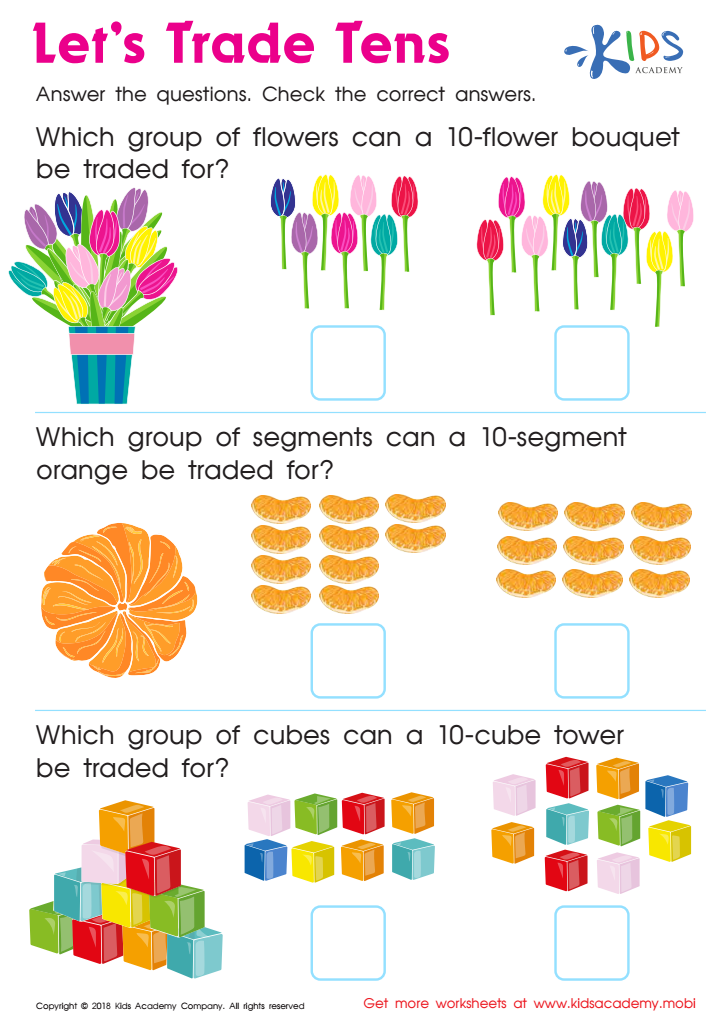

Lets Trade Tens Worksheet
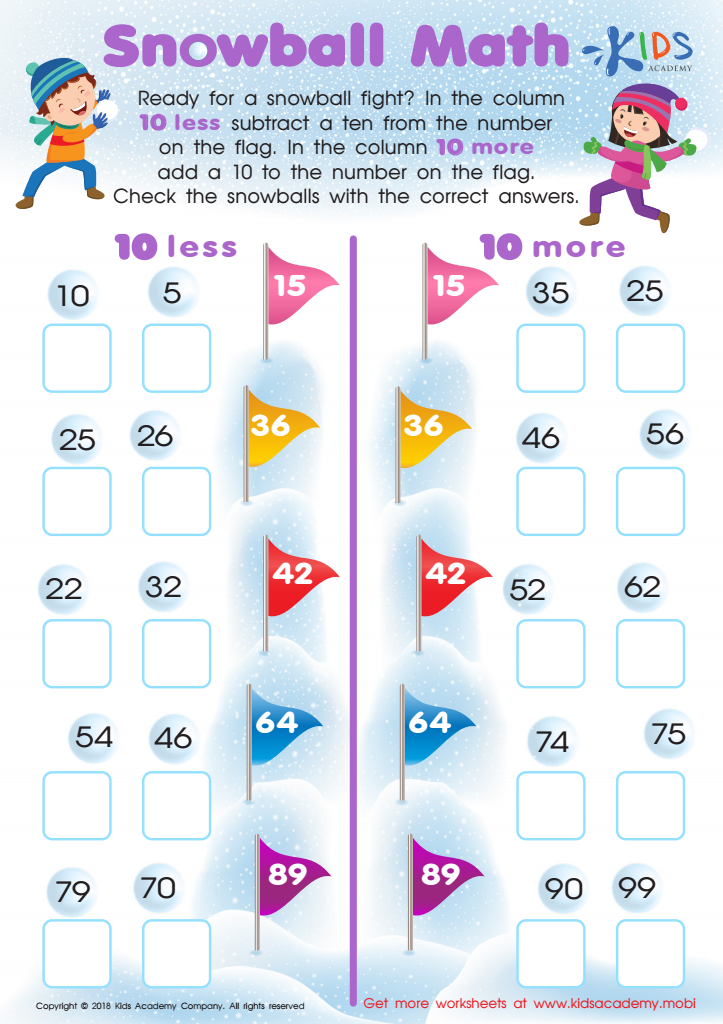

Snowball Math Worksheet
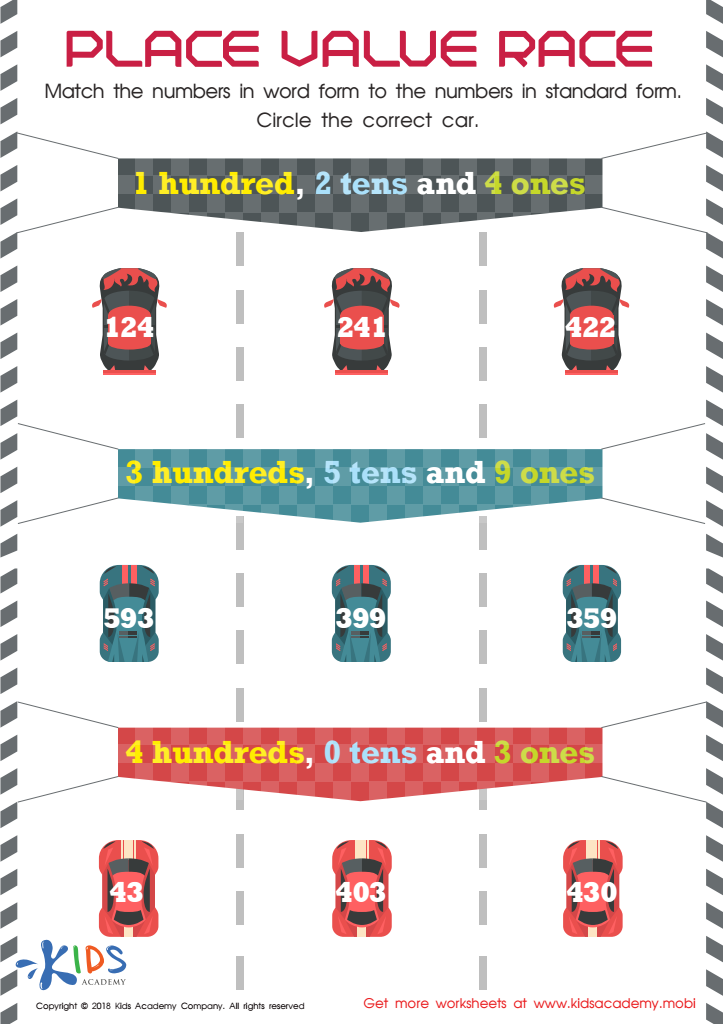

Place Value Race Worksheet
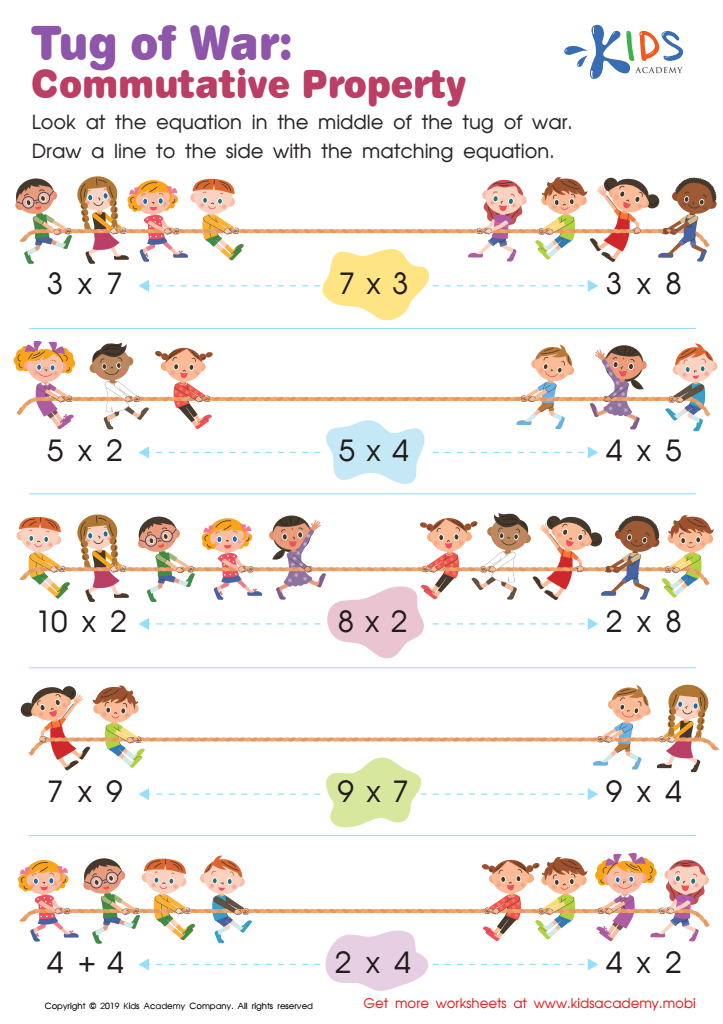

Tug of War: Commutative Property Worksheet
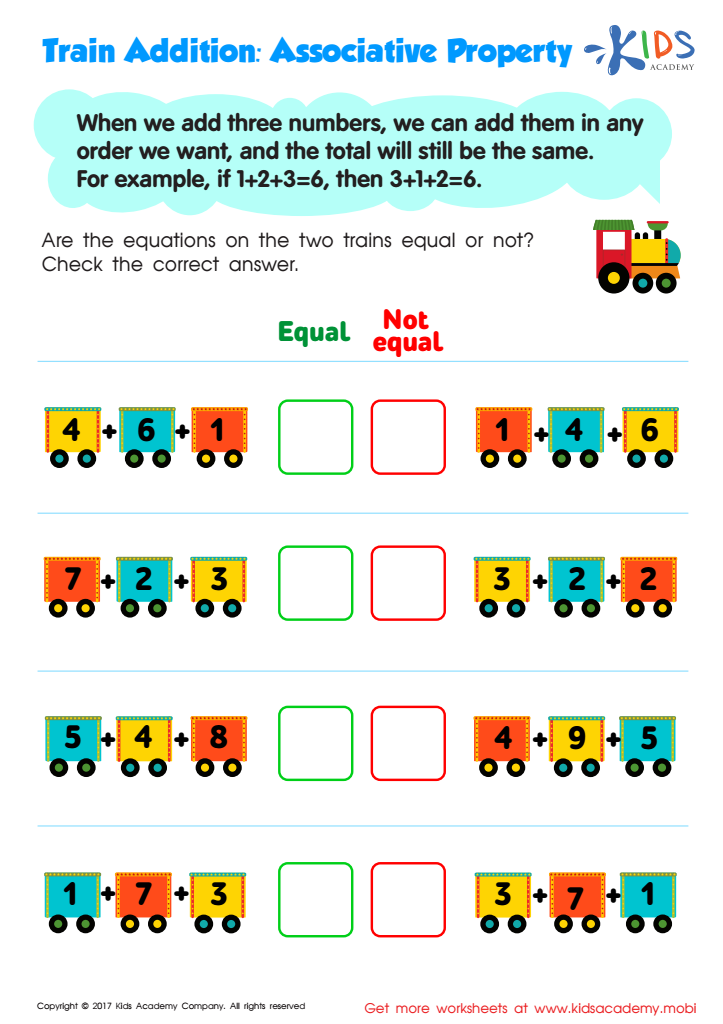

Train Addition: Associative Property Worksheet
Practicing addition math for ages 6-8 is fundamental to a child's overall academic development, making it essential for parents and teachers to prioritize. Firstly, mastering addition forms a crucial foundation for more complex math concepts. When children achieve fluency in addition, they're better prepared to tackle subtraction, multiplication, division, and later, more advanced topics like fractions and algebra.
Secondly, early proficiency in addition enhances a child's confidence in math. Positive reinforcement from successfully completing addition problems instills a sense of accomplishment and can ignite a lifelong interest in the subject. This can help negate math anxiety, which is common as math becomes more challenging in later grades.
Furthermore, practicing addition promotes cognitive development, such as problem-solving skills and logical thinking. These are valuable across all subjects and even in everyday life situations. For example, understanding addition helps children grasp practical concepts like time management and financial literacy.
Additionally, early math skills have been linked to better academic performance. According to educational research, children who excel in math during their initial school years tend to show higher achievement levels throughout their education.
By emphasizing addition practice from ages 6-8, parents and teachers lay the groundwork for a child’s future academic success and cognitive growth, making it an invaluable part of early education.
 Assign to My Students
Assign to My Students

